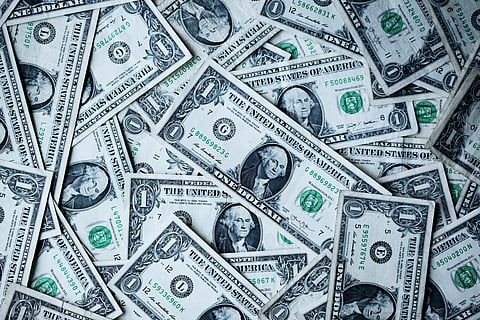As the annual World Economic Forum (WEF) gets underway this week at the Swiss ski resort of Davos; the charity Oxfam says extreme wealth and extreme poverty have increased simultaneously for the first time in 25 years – and is calling for fairer taxation in response to the soaring inequality.
Hundreds of billionaires, dozens of government ministers and central bank governors are due to attend the WEF, widely seen as a get together for the global super rich. In its report, "Survival of the Richest,” published Monday, Oxfam says the world’s billionaires are becoming richer.
“Davos is back in January. The festival of wealth is back. And we're bringing alarming new findings which show that the one percent, the richest one percent in the world have grabbed nearly two-thirds of all new wealth created since 2020,” Oxfam America’s director of economic justice, Nabil Ahmed, told VOA.
Pandemic profits
Oxfam says the source of that wealth is partly government money: emergency liquidity pumped into the global economy as the coronavirus pandemic forced countries into lockdown in 2020.
“That was essential. But at the same time the ultra-wealthy were able to really ride this asset boom that resulted, the stock market boom that resulted. And without the guardrails of progressive taxation in the economy, the ultra-wealthy were really able to line their pockets,” Ahmed said.
Inflation
Oxfam calculates that at least 1.7 billion workers now live in countries where inflation is outpacing wages, meaning people are becoming poorer. The wealth of billionaires, however, has surged as inflation drives up food and energy prices.
“The current cost-of-living crisis, with spiraling food and energy prices, is also creating dramatic gains for many at the top. Food and energy corporations are seeing record profits and making record pay-outs to their rich shareholders and billionaire owners. Corporate price profiteering is driving at least 50% of inflation in Australia, the U.S. and Europe, in what is as much a ‘cost-of-profit’ crisis as a cost-of-living one,” the Oxfam report says.
“We were able to show how 95 food and energy corporations have actually been able to double their profits in 2022,” the charity’s Ahmed told VOA.
Fair taxes
Oxfam is calling for windfall taxes imposed on energy companies to be extended to food companies making big profits. It also wants a tax of up to 5% on the world’s multimillionaires and billionaires.
“The spectacular rise of wealth and income at the very top has coincided with a collapse in taxes on the richest 1%. While there are differences between countries, the general trend towards lower taxes for the rich has been remarkably similar across all regions of the world,” the report says.
“Extreme inequality is not inevitable,” Ahmed told VOA. “This isn't about nurses, teachers, the middle class. This is really about those at the very top, ensuring that they're paying far fairer taxes.”
Solutions
The president of the WEF maintained that the annual Davos summit does benefit the whole world.
“So much is at stake, we really need to find solutions on the wars and conflicts. We also have to secure that we don’t go into a recession, and we have 10 years of low growth, as we had in the 1970s. That is at stake, and we need all the stakeholders to be part of working towards a safer and more inclusive growing global economy,” World Economic Forum President Borge Brende told The Associated Press. (SJ/VOA)


